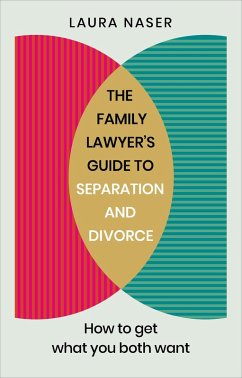
Divorce and the Special Needs Child (eBook, ePUB)
A Guide for Parents

PAYBACK Punkte
10 °P sammeln!
Going through a divorce is always tough, but when a child with special needs is involved it can be especially challenging. This book takes a clear and comprehensive look at every aspect of the legal divorce process, and addresses all of the legal issues that divorcing parents of children with special needs face.The author guides parents through the initial hurdles of choosing the right lawyer for their case, and explains exactly how to work with them to achieve the best possible outcome for all concerned. From agreeing upon child custody arrangements that meet the particular needs of the child...
Going through a divorce is always tough, but when a child with special needs is involved it can be especially challenging. This book takes a clear and comprehensive look at every aspect of the legal divorce process, and addresses all of the legal issues that divorcing parents of children with special needs face.
The author guides parents through the initial hurdles of choosing the right lawyer for their case, and explains exactly how to work with them to achieve the best possible outcome for all concerned. From agreeing upon child custody arrangements that meet the particular needs of the child, to making provision for child support payments, gathering together the documentation needed to prove a case, and dealing with financial issues such as debts and property distribution, no aspect of divorce is left uncovered. A set of checklists is included to ensure that parents consider everything they need to, and the book concludes with a useful list of further resources.
Written by an experienced family lawyer who went through her own divorce when her son, who has autism, was six, this book offers much-needed guidance to divorcing parents of children with a variety of special needs.
The author guides parents through the initial hurdles of choosing the right lawyer for their case, and explains exactly how to work with them to achieve the best possible outcome for all concerned. From agreeing upon child custody arrangements that meet the particular needs of the child, to making provision for child support payments, gathering together the documentation needed to prove a case, and dealing with financial issues such as debts and property distribution, no aspect of divorce is left uncovered. A set of checklists is included to ensure that parents consider everything they need to, and the book concludes with a useful list of further resources.
Written by an experienced family lawyer who went through her own divorce when her son, who has autism, was six, this book offers much-needed guidance to divorcing parents of children with a variety of special needs.
Dieser Download kann aus rechtlichen Gründen nur mit Rechnungsadresse in A, D ausgeliefert werden.













